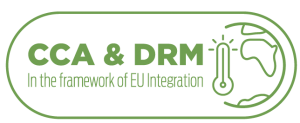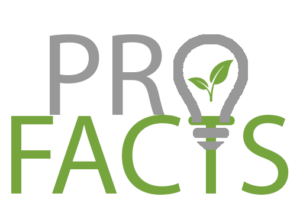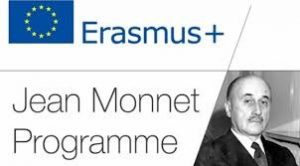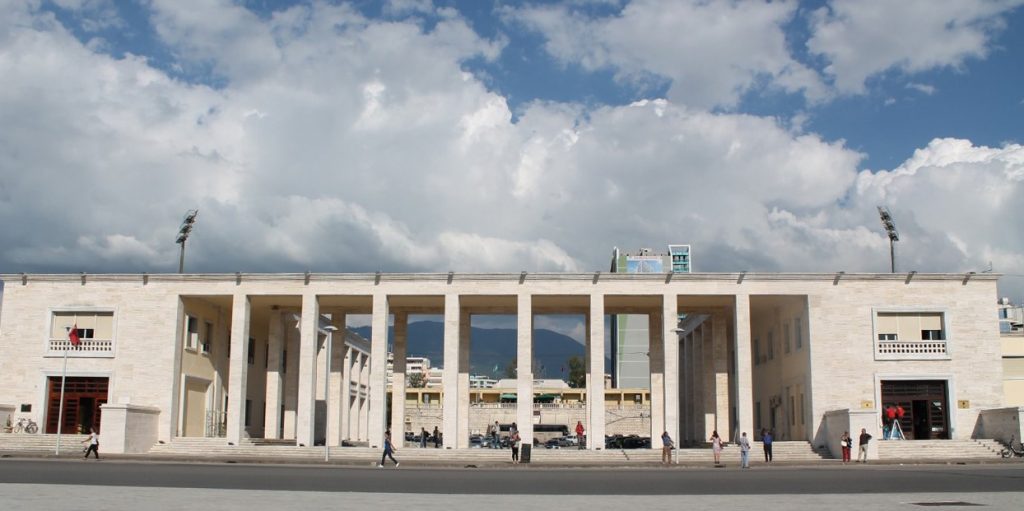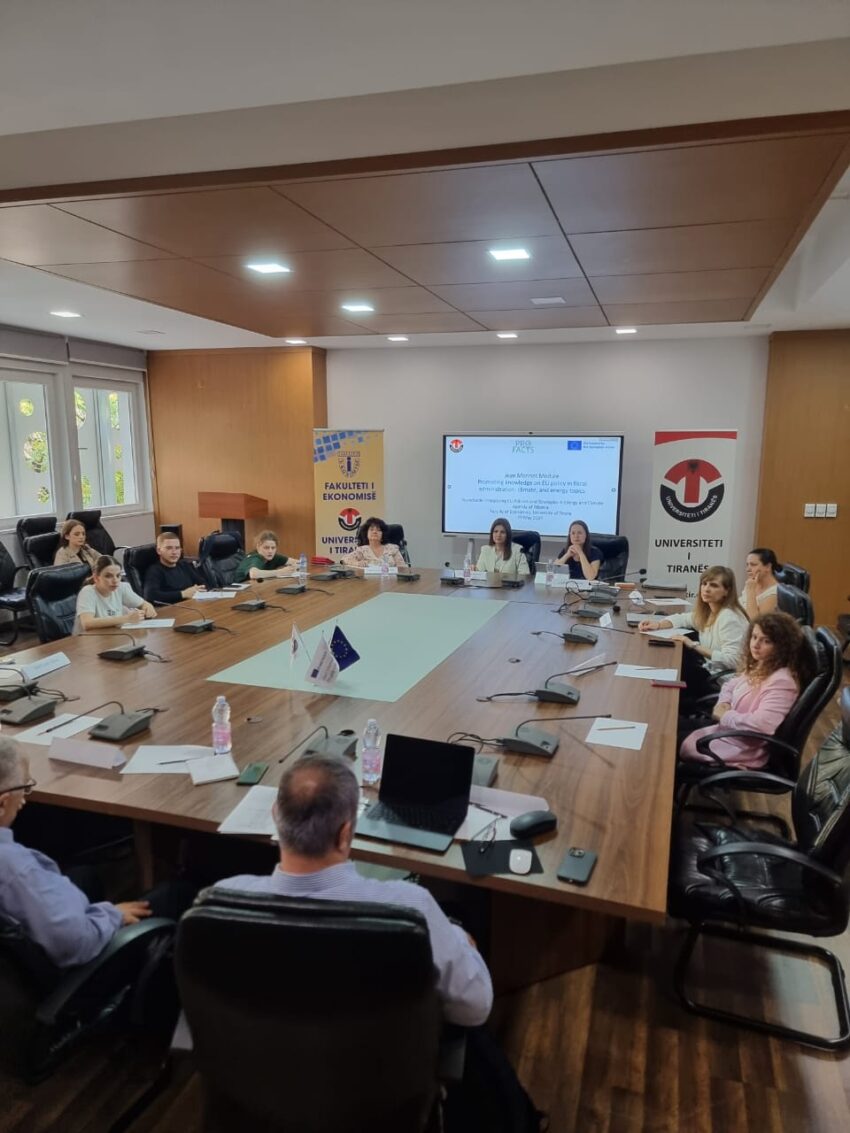The roundtable entitled “Integrating EU Policies and Strategies in Energy and Climate Agenda of Albania” was organized at the premises of the Faculty of Economics, University of Tirana (FEUT) within the Jean Monnet Module “Promoting knowledge on EU policy in fiscal administration, climate, and energy topics” The event addressed the interconnection of climate change mitigation policies with the energy sector under the EU agenda.
This roundtable brought together diverse stakeholders to share different perspectives and identify common points of view on the roles of governments, EU cooperation, and academia. Professors from the Faculty of Economics contributed significantly to the discussions on the role of Higher Education Institutions (HEIs) in the EU agenda. The aim was to discuss pathways for future collaborations toward establishing the best national policies in accordance with EU strategies, best practices in addressing climate risk and the energy sector, and the role of academia in the EU agenda.
The event aimed to outreach relevant institutions such as public agencies dealing with energy issues, including the National Agency of Natural Resources, international institutions working in climate agenda, Civil Society organizations, and experts in the outlined fields.
Mirela Kamberi, National Project Coordinator from UNDP presented Albania’s path toward the international agenda in climate and energy. Artan Leskoviku, Head of Energy at the National Agency of Natural Resources, highlighted Albania’s contributions to renewable energies within the EU and beyond. He discussed Albania’s capacity to balance renewable energy development without negatively impacting other sectors such as agriculture and tourism.
Besim Islami, a professor and a well-known expert in the field, CEO EECG ltd at EECG – Energy Environmental Consulting Group, emphasized the development of the sector with consideration for other sectors, along with the potential of the Western Balkan countries as a unique market. He also discussed the cooperation of industry, business, public sector, and academia in developing research projects and collecting data.
Additionally, students from the “Master of Science in Risk Management” program were present and engaged in discussions on further collaboration with relevant institutions in the field. They had the chance to connect with organizations and institutions that could offer future career opportunities.
Key issues discussed included the lack of data and the role of research institutions in supporting the integration of EU policies and strategies in Albania’s energy and climate agenda. The roundtable concluded with a consensus on the importance of continued dialogue and collaboration to address climate change and energy challenges effectively.
https://drive.google.com/drive/folders/1_puZKqpVJwu65GtRgL-aW1y0uLVceV5f
